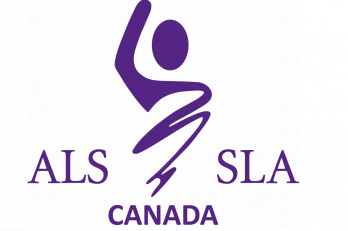Latest updates were shared during the 6th Project MinE virtual Science meeting January 21st 2022. In total 55 researchers and […]


Join the fight and help us discover the genetic basis of ALS. Start or support a local initiative to raise funds. Project MinE, make it yours!

100 percent of all donations to Project Mine will go directly towards the mapping and analysis of DNA profiles.
“Why have I been diagnosed with ALS when so many other people have not?” This is an all-too-common question of people living with the devastation of an ALS diagnosis, and the ALS Society of Canada (ALS Canada) wants to help answer it. We are leading Canada’s fundraising efforts for Project MinE to support the sequencing of up to 1,000 Canadian genomes.
As a national organization responsible for the ALS Canada Research Program, we aim to accelerate research impact through a comprehensive national program focused on translating scientific discoveries into treatments for ALS and fostering Canada’s strong and networked ALS research community to build capacity and collaboration. Support for the ALS Canada Research Program is made possible by the generosity of donors, ALS Societies across Canada, Brain Canada and the federal government’s Canada Brain Research Fund.
The Canadian component of Project MinE brings together four of Canada’s leading ALS geneticists in Vancouver, Toronto, Montreal and Quebec City for their first ever cross-country collaboration. Each has led or been part of international consortia that have resulted in some of the most important genetic discoveries in the field. They also represent a geographical balance that provides a collaborative set of Canadian samples representative of ALS cases across the country.
Other essential collaborators in Canada’s Project MinE effort are the four Canadian ALS clinics that are collecting and in some cases storing the blood samples being used for the initiative: the GF Strong Rehabilitation Centre’s ALS Centre in Vancouver, the Sunnybrook Health Sciences Centre ALS Clinic in Toronto, the ALS Program at the Montreal Neurological Institute and Hospital, and the ALS Clinic at the CHU de Québec.
Read more about Project MinE Canada on the website of ALS Canada. Or create your own fundraising team for Project MinE by contacting teamals@als.ca.
In Canada, we have several ambassadors for Project MinE.

In Memoriam: ALS Canada ambassador Chris McCauley
Social worker, policy research analyst and ALS patient
Months after celebrating his first wedding anniversary in 2014, Chris McCauley noticed some unusual twitching in his arms and legs while vacationing with his wife in Costa Rica. Shortly thereafter, he was diagnosed with ALS at the age of 52. “Instead of looking forward to establishing a home and thriving in career and community, we were doing our best not to deny the opposite reality,” he said.
After his diagnosis, Chris – a policy research analyst and social worker –became keenly interested in ALS research. Given the multiple causes, numerous disease pathways, and the different ways and rates at which ALS progresses and the variations in survival, he was struck by the immense challenges researchers face in developing a treatment or cure for the disease.
To Chris, the promise of Project MinE is tremendous as it will make ALS easier to study and has great potential to lead to effective treatments. He brought his voice to Project MinE in Canada to help make things better for people who will be diagnosed with ALS in the future. As he put it, “I think of others who will come after me and like me, lose the blossom of their health so insidiously. I want to do something to make it better.”
Chris served as ALS Canada’s ambassador for Project MinE until his death in August 2017. In his memory the international researchers connected to Project MinE are continuing their search for the causes of this brutal disease.
Project MinE research in Canada is performed by:

Dr. Dupré has made major contributions both locally and internationally to the fields of neuromuscular and neurogenetic medicine, and has published more than 100 peer-reviewed papers and five book chapters.
He is currently the director of the Neuromuscular & Neurogenetic Disease Clinic of the CHU de Québec – U Laval, taking care of thousands of patients from the Eastern Quebec area afflicted with rare and common diseases of the nervous system.
Dr. Dupré was involved in the 2008 discovery that the gene TDP-43 is involved in ALS. He also helped to establish the ALS clinic at the CHU de Québec, providing care to patients in Eastern Quebec.

Dr. Mackenzie is Professor of Pathology and Laboratory Medicine at The University of British Columbia, Consultant Neuropathologist of Vancouver Acute and BC Cancer Agency, and Head of the Neuropathology Division at Vancouver Acute.
Dr. Mackenzie has broad expertise in neuropathology and the use of brain tissue banks in the care of patients with neurological disorders. His research program centers on neuropathology and the molecular genetics of neurodegenerative disease, particularly dementias. He is currently the Canadian representative to the International Society of Neuropathology and is an editorial board member for a number of neuropathology journals.

For the past 20 years, Dr. Rogaeva has contributed substantially to the development of effective genetic testing of different forms of dementia and movement disorders in her clinical practice, with a strong focus on Parkinson’s Disease, Alzheimer’s Disease, amyotrophic lateral sclerosis (ALS), and frontotemporal lobar degeneration.
Dr. Rogaeva played a central role in the discovery and characterization of the two presenilin genes responsible for the most aggressive form of early-onset Alzheimer’s Disease, as well as the SORL1 gene associated with common late-onset forms of Alzheimer’s Disease. Dr. Rogaeva’s current focus is on genetic and epigenetic studies of C9orf72.
Dr. Rogaeva is the author of ~225 peer-reviewed publications and is listed among the top 10 Canadian neuroscientists, based on the highest impact papers published in 2013-2014.

Dr. Rouleau’s landmark achievements are his contributions to the identification of dozens of disease-causing genes and his discovery of new mutational mechanisms. Over the last 25 years, Dr. Rouleau and his team have focused on understanding the genetic basis for diseases and identifying genes causing neurological and psychiatric diseases including amyotrophic lateral sclerosis, stroke, Essential Tremor, familial aneurysms, cavernous angiomas, epilepsy, spinocerebellar ataxia, spastic paraplegia, autism, Tourette syndrome, restless legs syndrome, schizophrenia and bipolar disorder.
Specifically for ALS, he has been investigating the genetic basis of this disease since 1986 and has contributed to the identification of many of the genes currently known to predispose to this disease. He has published more than 700 articles in top peer-reviewed journals such as The Lancet, Cell, and Nature, as well as 50 review articles and book chapters. His work has been cited over 50,000 times.
The fundraising for Project MinE is led by ALS Canada.
